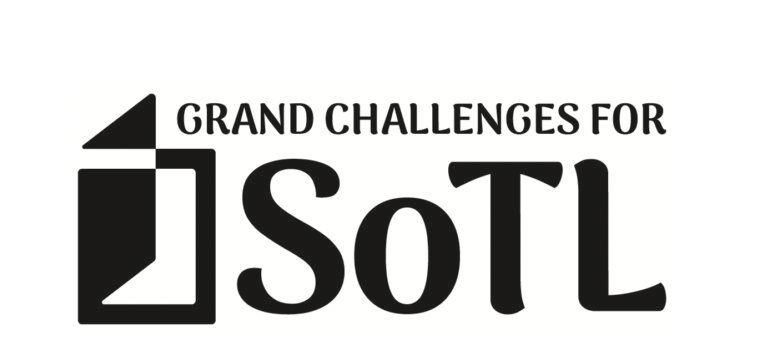Most applications for scholarships, fellowships, and graduate or professional schools require what is known as a personal statement or letter of intent. While college transcripts, test scores, and letters of recommendation provide admission officers with important information about you, they do not provide a sense of who you are, how you see yourself, what you hope for yourself and for your work, how well you communicate, and so on. The personal statement or letter of intent is your chance to communicate who you are to the people who will read your application. A well-written, memorable essay can be a great asset to your application, while a poorly-written one can jeopardize your chances of being accepted to the institution or program of your choice.
Some applications state specific questions to which they want you to respond; others give more general directions or none at all. Almost all ask for an essay of a specific length, usually consisting of one or two pages. In short, you have at most a couple of pages to convince your readers that you are an intelligent, interesting, well-rounded person who would not only succeed in, but be an asset to, the program to which you are applying. Try to think of your personal statement as an opportunity – albeit a challenging one – to let people see the real you.
Determining content
When thinking about content, determine first what makes your life meaningful and interesting. Some people might write about volunteer experiences or extracurricular activities; others might remember feelings or events involving family, friends, community, beliefs, or childhood memories. Whatever you choose to write about, you should do more than simply tell a story. You should explain why these events, people, or memories define who you are. The people who will read your application will not be interested in the community in which you grew up unless it is clear to them how that community shaped you as a person.
Avoid trying to write an autobiography. You cannot include everything that has been of significance in your life. If you try, you will simply be writing a summary of events without exploring their meaning. Make a list of what you think is most important; then read through it several times, eliminating all but the most important things. Note: always think carefully before writing about personal problems that you have had. Although these events might have shaped who you are as a person, they may have the unintended effect of embarrassing your reader or making them uncomfortable. Always think of the possible impacts on the reader while deciding what to write about and how to write about it.
It is occasionally advisable to address a point in your application that needs explanation. For example, you may have had a spell of poor grades. If you have a good reason for the low grades, you can help your cause by offering it. However, you must somehow offer your explanation without sounding like you are making excuses. Try to see a redemptive element in your temporary weakness. Perhaps bad or trying circumstances have led to this fall, but has taught you something about human nature, or taught you to respect someone close to you for the way he dealt with serious illness or bereavement. If you find it necessary to describe something painful, focus on the positive.
A good personal statement or letter of intent balances a discussion of your past experience with an explanation of your goals, plans, and aspirations. Do not write an essay entirely about what you plan to do, but do not ignore your plans either. If possible, show the continuity between your past experience and your future plans.
One final piece of advice: before determining the content of your personal statement or letter of intent, talk with the people who are writing your letters of recommendation. If they are well enough acquainted with you, they may be able to spot weaknesses in your application and give you some direction. They might also agree to address in their letters the parts of your application that raise questions, thus freeing you to write your personal statement or letter of intent without having to address these issues.
Writing the personal statement or letter of intent
Begin working on your essay well in advance of the deadline. The two-page personal statement or letter of intent will take more time and will be harder than you think. Allow more than enough time for brainstorming, starting over, drafting, giving the statement to friends and advisors to read, revising, and for final editing.
Answer the questions thoroughly and thoughtfully, and obey all of the parameters that you are given. Remember: your application will be one among hundreds. You do not want to waste the reader's time by giving them information they do not require. If your application materials ask you to answer a specific question, then answer that question exactly. Resist the urge to write just one master essay that responds to some approximation of all of the different questions. If there are specific questions, then clearly the readers are looking for specific information; if your essay does not give them that information, they will be less than impressed. Moreover, if the application specifies a one-page maximum, do not write two pages or half of a page. Respect the limits of the application form, and use the space you are given to its full advantage.
Keep in mind the purpose of your essay. Remember that the other parts of your application will tell the review committee about your schoolwork, extra-curricular activities, and intellectual ability. You do not need to repeat things listed elsewhere on the application. Nor do you need to try to prove that you are smart. You should have two goals: first, to show that you can communicate clearly and easily; and second, to convey a sense of whom you are within the parameters of the questions asked.
Research
Do your homework. Applications may ask specifically why their program is ideal for you, or why you are ideal for their program. In order to answer this question, you must find out everything you can about the program: its strengths, its weaknesses, its faculty, its structure, and so on. Even if a school does not ask specifically why you are interested in its program, if you have researched the schools to which you are applying, you can use your knowledge and preferences for these programs to your advantage in your application essay.
Structure
In order to give your essay coherence, look for and bring out any common threads between the few topics you choose to cover. Work out a logical structure for the essay, and introduce the major themes early enough to give direction to the entire essay. Like
any other piece of good writing, your personal statement should not cause the reader any disorientation or confusion.
The opening paragraph is crucial. You may be advised to use the opening paragraph to grab attention. Writers commonly use questions, quotes, or anecdotes in the opening paragraphs, but do not feel compelled to follow this advice. The opening paragraph not only grabs attention, but also establishes the tone for the rest of the essay; therefore, this paragraph must suit both your topic and your style. If you make a joke in your first line, but the rest of the statement shows that you really do not have a sense of humor, then the first line will seem incongruous. Moreover, you do not want the first sentence or paragraph to overpower the rest of what you have to say - either with its wit, its profundity, or its vividness. In short, the opening paragraph must complement the rest of the essay.
Similarly, when thinking about creative approaches to structuring your essay, use good judgment. You might wish to experiment with structures that are more interesting and creative than the obvious ones (the chronological, the topical, and so on). A creative approach will make your essay stand out from the pack. Keep in mind, though, that all of the above advice about consistency also applies to your essay's overall structure. Finally, make sure the creative touches you make throughout your essay are indeed "creative." The problem of writing an interesting, attention-grabbing personal statement has been around for a long time. Make sure that you do not fall victim to cliché.
Style and tone
The personal statement or letter of intent must not be abstract or vague in any way. Though the personal statement deals in abstractions, one of your greatest challenges is to write about these topics without falling into cliché, platitude, or generalization. Try to keep your writing as concrete as possible, using examples and images. Avoid the metaphorical and the grandiose.
When explaining the significance of events in your life, watch your tone. You should be able to discuss something thoughtfully and still resist the temptation to "blow things up," or to invest them with too much meaning. Be wary of inflated or melodramatic prose that will seem nonsensical to any sensible reader. If you are judicious in your use of language, your reader will be impressed.
Choose your words with care and make every one of them work hard. Since you have very little space, it is important to write concisely. Use the correct word, not the one with the most syllables. You do not have to trot out vocabulary to prove your intellectual superiority; write with taste. Avoid pretension, arrogance, and melodrama. Be frank and mature.
Revision
Once you have written a draft, have people read it – friends, family members, or professors. You are the author, but input from people who know you can often help you see how your statement may fall short of adequately describing you. Other readers might also be able to tell you when parts of your statement are too abstract, obscure, or summary.
When you have produced a draft with which you are satisfied, sit down with a dictionary and grammar reference and proofread it. Running a spell-check on your
computer will not identify all the errors. Your statement must not have misspelled or misused words, and no grammatical errors. You should follow even those grammatical rules that are no longer strictly enforced.
Adapted from
Julie Kalish, ,J. (2004). Graduate applications. Institute for Writing and Rhetoric. Dartmouth College. Retrieved from www.dartmouth.edu/~writing/materials/student/tasks/graduate.shtml





























